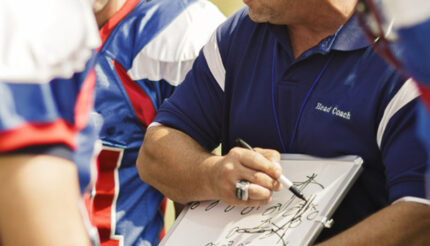How to build a high performing team….
Everybody recognises the value of a really engaged and high performing team, yet, in many cases, we see disconnected teams delivering poor performance because time has not been spent in understanding what is actually needed to engage with the wider team. In this guest blog post Mhairi Richardson of TomRom Team Coaching shares her advice on how to build an effective and high performing team.
From the small business owner just thinking about expanding and taking on a new employee, to the huge corporate giant where a new person is joining the senior leadership team it is equally important to understand how that new person will fit and the adjustments that may be needed to make the new relationships work.
In my work as a leader, a coach but also as a netballer I have seen many new teams formed, and some fail. For years I felt it was just that’s the way it was and although every time I was faced with a new hire or new player I would try a little bit harder to make it work but still we had our failures.
As my interest in teams grew along with my understanding of the psychology behind human relationships, I began to see patterns. I have experienced the ups and downs of teams and team building, undertaken extensive research on the subject, and have built a network of team coaching peers with whom I can debate the finer details. And now I finally I feel I can quantify what makes a good team.
By referring to the work of Patrick Lencioni and in his Dysfunction of Teams and reversing it, we can see what is necessary to achieve a great team. I then add some practical experience to give you this list of the 5 key areas to work on and consider when working to create and build strong teams.
Focus on real results – This may seem a simple thing, but my experience is that quite often the team are unclear about what the business as a whole is trying to achieve. They may be well aware of their own targets and priorities but they are unclear of how these fit into the bigger picture and often how what they do impacts others within the business.
For teamwork to flourish every department needs to have an understanding of where they fit in the overall objectives and how they can best serve the wider team and ultimately the business. What you are working towards (the results) should be clear in the mind of each team member.
Accountability – Each team member, including the leader, should be open to being held accountable. With a clear focus on results, it is easier to be clear on expectations and to hold each other, and themselves, accountable. In an open and honest environment, it is expected that team members take responsibility for their actions and ensure wider delivery rather than looking to cast blame elsewhere when the overall result is not delivered.
Commitment – Understanding that working together is better than working in silos, being focussed on results and holding each other accountable will require commitment from every team member. Commitment to the team, commitment to each other and ultimately commitment to the results. This is an area that is often overlooked or assumed by virtue of the role assigned but it is worth spending extra time to make sure everyone is wholly on board.
Conflict – A strong team needs to be able to challenge its members and survive the conflict. It is important that everyone feels comfortable in raising objections so that things can be debated and, ultimately, a conclusion arrived at. People need to feel it is both a safe space to express their doubts and concerns but also a place to ask for help. Diversity is crucial in creativity and so encouraging different opinions and perspectives in the decision making will ultimately result in more innovative thinking, and be a huge benefit to the business.
Trust – Without trust a team cannot function properly – it really is as simple as that. Trust is an essential component and it can take time to build it, especially within teams that change regularly. However, if a culture of openness and honesty is encouraged and people are given the time and space to get to know each other it will bring great strength to the team. It’s not just about away days and team-building exercises, sometimes it’s the quieter times or just discussing something like a book, or a recurring problem that can open up understanding. Try and think creatively about ways to build relationships and always make sure that people feel safe enough to express how they feel and be honest.
Without a doubt maintaining a high functioning team is hard work but if you put the work in at the beginning you will find that the team takes on an identity of its own and that will help new members to feel at home and comfortable to bring their whole selves to the team. Celebrating diversity, but unifying under the one purpose will make for an unstoppable team.
 Mhairi Richardson is a coach who specialises in working with teams to help them gain confidence, clarity and to achieve more. She focusses on building trust within the team and using a combination of coaching, mentoring and facilitation and will tailor the program to the needs of your business. Mhairi is always happy to help and she has a strong SME’s background, a focus on the detail, a high level of emotional intelligence and a strong desire to develop talent and grow high performing teams. For more information visit TomRom Team Coaching
Mhairi Richardson is a coach who specialises in working with teams to help them gain confidence, clarity and to achieve more. She focusses on building trust within the team and using a combination of coaching, mentoring and facilitation and will tailor the program to the needs of your business. Mhairi is always happy to help and she has a strong SME’s background, a focus on the detail, a high level of emotional intelligence and a strong desire to develop talent and grow high performing teams. For more information visit TomRom Team Coaching





